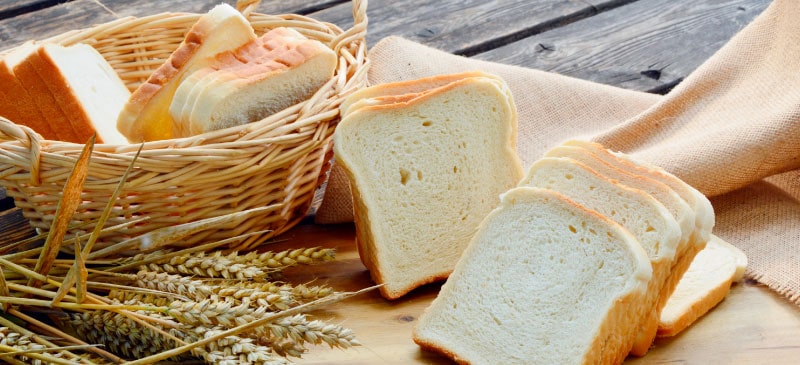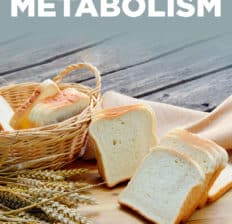This Dr. Axe content is medically reviewed or fact checked to ensure factually accurate information.
With strict editorial sourcing guidelines, we only link to academic research institutions, reputable media sites and, when research is available, medically peer-reviewed studies. Note that the numbers in parentheses (1, 2, etc.) are clickable links to these studies.
The information in our articles is NOT intended to replace a one-on-one relationship with a qualified health care professional and is not intended as medical advice.
This article is based on scientific evidence, written by experts and fact checked by our trained editorial staff. Note that the numbers in parentheses (1, 2, etc.) are clickable links to medically peer-reviewed studies.
Our team includes licensed nutritionists and dietitians, certified health education specialists, as well as certified strength and conditioning specialists, personal trainers and corrective exercise specialists. Our team aims to be not only thorough with its research, but also objective and unbiased.
The information in our articles is NOT intended to replace a one-on-one relationship with a qualified health care professional and is not intended as medical advice.
6 Foods that Slow Metabolism (Plus Healthier Swaps)
January 13, 2025

There is nothing worse than starting an exercise program to burn fat, making some good diet changes but still not seeing the results you want to see. Has that ever been you? It can be really frustrating — and be due to consuming foods that slow metabolism.
The reason this happens, even though you think you’re consuming a “healthy diet,” is that there are often some hidden foods in your diet that may be ruining your weight loss efforts. The foods that keep you from losing the last 10 pounds and keep you stuck at a plateau are known as foods that slow metabolism.
The term may sound scary, and it can be. Your body is likely to recognize these processed foods as toxins, and this can mean you suffer some ill effects as a result of eating them often, such as poor gut health.
Furthermore, you might even kick your immune system into overdrive with foods that throw your normal blood sugar out of whack or food intolerances that cause inflammation — keeping your nervous system in a constant fight-or-flight state.
The food groups described below negatively alter your metabolism in part by causing problems such as:
- Weight gain
- Thyroid dysfunction
- Fatigue or muscle weakness
- Hormone imbalances
- Digestive distress and microbial gut changes
- Blood sugar fluctuations
- Increases in appetite, overconsumption of calories and sugar cravings
The craziest thing about these foods that slow metabolism? They are often labeled as “health foods”!
Read on to find out the six foods that slow metabolism I recommend switching out of your diet in order to take your metabolism and fat-burning potential to the next level.
1. Fruit juice
Contrary to popular belief, fat in your diet likely isn’t the primary thing making your waist bigger — it’s probably consuming too much hidden sugar!
Drinking fruit juice and other ways of consuming too much sugar destroys your body and can wreck your metabolism in several ways, including causing sluggishness, cravings and inflammation.
The worst part is that most commercial juices and processed, sugary foods don’t provide you with substantial amounts of vitamins or minerals despite their high calorie counts.
Fruit juices (including most apple, orange and grape juices) are basically the equivalent to drinking chemically laden sugar water. I know something like apple juice sounds healthy, but the process of turning an apple into juice is typically as follows:
- First, they press the apple and remove all of its natural filling fiber, and then they heat it up through pasteurization at 280 degrees.
- Then it’s dried and turned into a concentrate used to yield higher outputs at lower costs.
- Finally, manufacturers add in even more sugar, usually along with food coloring and flavorings. The finished product is the apple juice you buy from the grocery store, maybe even to give to your kids!
Here’s something else you might not realize about the sugar content of juice: One eight-ounce glass of fruit juice can contain up to 30 grams of sugar, while a soda usually contains around 28 grams of sugar!
Juice isn’t the only thing you should avoid if you want to keep your added-sugar intake low. Other sources of hidden sugar to reduce include:
- alcoholic beverages or mixes
- bottled caffeinated or coffee drinks
- energy drinks
- cereal
- yogurt or flavored dairy products
- condiments, such as ketchup or sauces
- granola snack bars
Sugar is hidden under numerous names, like corn syrup, dextrose, fructose, juice concentrate, raw sugar and brown sugar. Check ingredient labels carefully, or better yet, ideally avoid buying foods or drinks that require a label in the first place.
What to do instead: To replace fruit juice with a healthier alternative, I recommend making homemade lemonade by mixing real lemon juice, water and stevia.
Kombucha is another great option to satisfy your need for something besides plain water, as well as herbal teas mixed with raw honey or some steeped fruit slices.
You might also find that drinking coconut water, practically nature’s sport drink, makes another satisfying option, helping cut down on your cravings for things like soda, bottled smoothies, alcohol, sweetened coffee drinks or artificially sweetened drinks.
2. Refined grains
Eating lots of refined grains may affect your metabolism and weight loss efforts. Even many products that appear to be “whole grain” — and therefore assumed to be healthy — can contribute loads of mostly empty calories to your diet without much nutrient benefit in return.
Surveys shows that in the typical Western diet some of the biggest grain offenders include commercially sold:
- breads
- pasta
- cereals
- crackers
- muffins
- desserts
- flours
- chips
- granola bars
To help combat obesity, the U.S. Department of Agriculture highly recommends limiting consumption of foods that contain refined grains, especially refined grain foods that contain solid fats, added sugars and sodium.
Studies show that higher refined grain intakes are associated with increased risk of cardiovascular diseases as well as inflammatory protein concentrations.
I know it may seem like many so-called “whole grains” (including many wheat breads, wraps or cereals) are healthier, but even most of these don’t help your metabolism much. Study results are not totally conclusive, but depending on the individual, some evidence links even whole grain consumption with changes in gut health and microbial metabolism.
When consumed in excess, refined grains can provide you with high levels of certain compounds that may hurt your metabolism, including gluten, lots of starch and phytic acid. Many packaged grain products also contain lots of added sugar, salt, synthetic preservatives, and are “fortified” with synthetic vitamins and minerals that can be hard to metabolize properly.
For some people (although not all), gluten can cause inflammation, which is the root of disease. People react to eating starches and lots of carbohydrate foods differently, but for those who are not very active or prone to weight gain, starches can turn into sugar quickly once consumed, cause overeating or cravings, and ultimately not provide many natural vitamins or minerals.
Research shows that the “antinutrient” phytic acid, a compound found in grains and legumes, binds to minerals, so while you might think grains are a good source of things like essential minerals and vitamins, phytic acid can prevent you from absorbing as much as you’d think.
What to do instead: A better option for fat loss is replacing your daily intake of refined grains with fruits and vegetables or consuming 100 percent (ideally soaked and sprouted) whole grains in moderation. Certain whole grains are also called “ancient grains” and include things like rolled oats, buckwheat, amaranth, quinoa, teff and millet.
According to researchers at Harvard Medical School, consuming ancient whole grains as part of an otherwise balanced diet can have benefits like supplying lots of fiber, reducing hunger, lowering high blood pressure and improving cholesterol levels. That’s because only unprocessed whole-grain kernels include three beneficial parts — the bran, endosperm and germ — meaning they don’t have their phytonutrients, vitamins and antioxidants removed.
However, for best results with weight loss I recommend consuming only about one to two pieces daily of a sprouted grain bread (like Ezekiel bread) — unless you’re gluten-intolerant.
I also recommend trying gluten-free flour replacements instead of wheat flour, especially coconut flour. Coconut flour is a dieter’s best friend because it’s high in fiber, which supports rapid fat loss, and contains filling, healthy fats that your body can burn as fuel.
3. Canola oil and other processed vegetable oils
Although we often hear that vegetable oils are a healthier alternative to things like saturated fats from dairy products, coconut oil or dark meat, some research suggests this isn’t necessarily true. When vegetable oils, such as canola oil, safflower oil or sunflower oil, replace all saturated fat in your diet, you may miss out on some benefits as a result.
In general, when it comes to including healthy fats in your diet, consuming the wrong types and amounts may wind up interfering with appetite regulation, your mood, hormone production and digestion, all of which can keep you from losing the “last 10 pounds” or seeing the results you’re looking for.
Meanwhile, you’ll benefit from eating other sources of healthy fats instead— including raw, full-fat dairy products and grass-fed butter or ghee, which studies show may help suppress your appetite, reduce fat mass and boost your metabolism in other ways.
You might think of butter as being “fattening” and unhealthy for your heart, but as I always say, butter is like your belly’s best friend! Grass-fed butter supports your metabolism because it is high in the type of fatty acid called conjugated linoleic acid, and coconut oil supports fat loss or weight management because it’s high in medium-chained fatty acids, which boost thermogenesis (production of heat in the body which burns energy).
Keep in mind that most commercially sold vegetable oils are often combined with solvents, such as hexane, during their manufacturing processes, and it isn’t clear from evidence if there are long-term health risks associated with consuming these solvents.
When used in processed foods — as they very commonly are — these oils may also become oxidized (or rancid), which can contribute to inflammation throughout the entire body, disrupting your hormones and metabolism.
Canola oil, in particular, has a reputation for being “heart healthy.” It’s derived from a variety of rapeseed, a flowering plant in the Brassicaceae (cabbage) family that isn’t naturally very high in fat, but when made into an oil it contains mostly monounsaturated fats and polyunsaturated fats, specifically ALA.
A large percentage of all canola oil is genetically modified, which means the crops used to make the oil have been hard-wired with pesticides. Certain studies indicate that GMO foods may contribute to cellular changes and toxicity — not exactly helpful for your body’s metabolism or overall health!
What to do instead: To get the benefits of different fatty acids, it’s wise to vary your intake. Recommendations differ depending on the authority, but the USDA recommends consuming up to 10 percent of calories from saturated fatty acids and also incorporating unprocessed monounsaturated and polyunsaturated fatty acids.
I recommend replacing all processed vegetable oils with unrefined, ideally organic and virgin oils, including coconut oil or real olive oil.
While most vegetable oils are a modern-day phenomenon, cleaner, less processed oils have been consumed for many centuries, and both can help turn your body into a fat-burning furnace. If you do regularly consume canola oil or other vegetable oils, look for organic brands that are cold- and expeller-pressed, meaning they aren’t combined with hexane during processing.
Purchasing only organic or European-produced oils helps ensure they are non-GMO.
4. “Healthy” chips, pretzels and crackers
So-called “healthy” chips usually contain processed vegetable oils, including safflower or sunflower oils, which as described above are high in omega-6 fats. Chips, crackers, etc., also contain lots of mostly empty starches/carbs and are very high in sodium.
Depending on the kind, these ultra-processed foods might also contain trans fats, such as partially hydrogenated oils, which are linked with numerous health problems.
These days, it’s common to see chips in the grocery store (even health food stores) made from things like beans, nuts, seeds, sweet potatoes, vegetables and “whole grains.” They might be tasty, but unfortunately they usually come packed with synthetic additives, may contain GMOs, are high in calories and might alter your gut health depending on how you digest these foods.
Don’t be fooled by clever marketing or packaging — these are not health foods!
If you choose to buy nut-based chips, they might be made with things like almonds and peanuts that are not always digested well by those with sensitive digestive systems. Another thing to consider is what types of foods you top your chips and crackers with or spreads you typically dip them into.
For example, many people assume that the combination of whole grain crackers and peanut butter makes for a healthy snack. However, the peanut allergy is one of the most common allergies today (especially among children) and has been linked to food sensitivities, leaky gut syndrome and microbial changes in some people.
Peanuts are often stored in moist silos, which can cause them to grow a type of fungus called aflatoxins that may affect the health of your gut.
Nuts can be healthy in moderate amounts, but they’re also another source high in omega-6 fatty acids, which most people already consume far too much of.
It’s been found that many Americans are getting way more omega-6s — sometimes five to 10 times more than recommended amounts! For example, consumption of soybean oil in America increased nearly 1,000-fold from 1909 to 1999!
What to do instead: If you want to start revving up your metabolism, remove empty sources of calories and too much omega-6s from your diet. I also recommend that for better digestive health you try switching to almond butter from peanut butter.
Nutrition-rich almonds are high in the amino acid L-arginine, which increases HGH production in your body. They are filling, especially when combined with something bulky like an apple that’s high in fiber, helping control your appetite and supporting growth of lean muscle.
Instead of overconsuming salty chips or pretzels, try one tablespoon of almond butter with celery, in a smoothie or with some fresh fruit.
5. Granola
This “health food” has had a health halo around it for years, but it’s secretly been hiding as a wolf in sheep’s clothing. Today’s popular granola brands have many issues, mostly because they are sky-high in sugar, calories and processed grains.
A measly half-cup serving of granola can set you back more than 250 calories, and it’s very unlikely to leave you feeling full or satisfied for long.
One of the most surprising findings about granola is that the honey used in it is highly processed and also might be a major cause of weight gain.
A study at Texas A&M University tested honey and found 76 percent of it contained no pollen whatsoever. In addition, the honey had been high-temperature pasteurized, meaning many of its enzymes were destroyed, and it was left practically no better than corn syrup!
The combination of gluten, phytic acid and processed honey is what makes this treat unhelpful for your metabolism and diet goals.
What to do instead: A great replacement to store-bought granola is to make homemade sprouted granola, including the kind that doesn’t contain any grains at all (a great option if grains are hard for you to digest).
Simply soak almonds, pecans, cashews and chia seeds in water for eight hours, and then set them out for a day on a paper towel. Then mix these ingredients with real foods, like raw local honey, raisins, coconut flakes, cinnamon and sea salt.
This will provide you with much more fiber, healthy fats and even some protein while drastically cutting back on added sugar and fake flavoring agents. Place the ingredients in a dehydrator or oven, and you have a great-tasting, metabolism-boosting snack or breakfast.
6. Artificial sweeteners
Of all the foods that slow metabolism, artificial sweeteners, including aspartame and sucralose, are probably the most deceiving.
Artificial sweeteners tell the lie that you can satisfy your sweet tooth with no calories, no guilt and a thinner waist line. However, aspartame is actually linked to dozens of adverse health effects, including altered brain antioxidant status, apoptotic changes in the brain and accelerated aging due to free radical damage.
Aspartame and sucralose can stimulate your appetite and increase cravings for carbohydrates. The calorie “savings” from consuming foods sweetened with aspartame end up not saving you anything due to the increase in appetite and, therefore, calorie consumption.
A major study evaluated the effect of diet soda consumption on rates of obesity, metabolic syndrome and diabetes in over 6,000 participants. It was found that the consumption of just one diet soda, loaded with artificial sweeteners, per day significantly increased the risk for increased waist circumference and weight gain.
What to do instead: Switch out artificial sweeteners for stevia, an all-natural, no-calorie sweetener derived from the sweet-tasting stevia plant. I recommend looking for organic stevia extract, ideally that is organically produced, pure and not mixed with other sugar subs.
Another option is using real, raw honey and dates in moderation. Both add sweetness to recipes naturally — just remember that with all sweeteners a little goes a long way.


